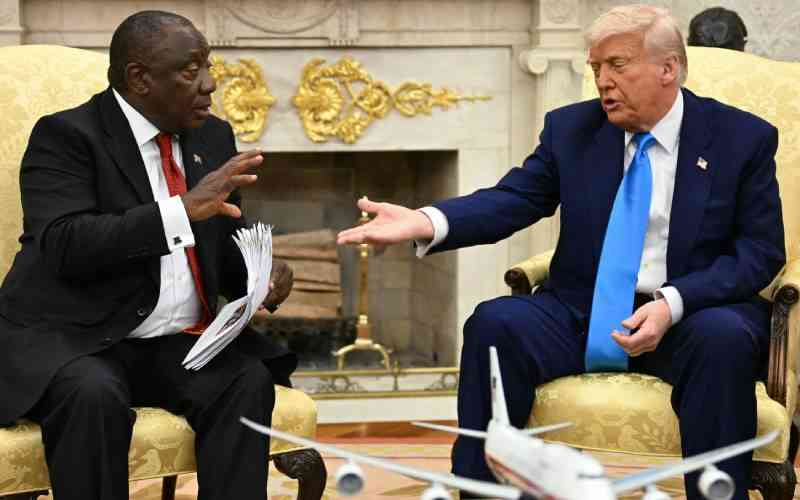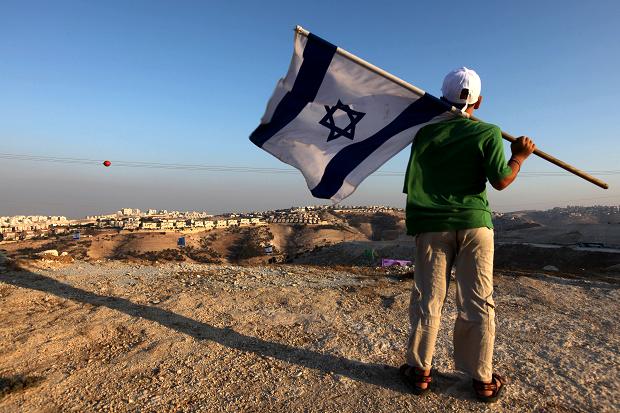Atrocity Alert No. 440: Israel and the Occupied Palestinian Territory, Protection of Civilians and Libya - occupied Palestinian territory | ReliefWeb
On 18 May the Israeli military announced the launch of a new, extensive ground operation in Gaza, following a week of intense airstrikes that killed at least 464 Palestinians. These strikes culminated in some of the most severe bombardments since the start of Israel’s war on Gaza. In a briefing to the UN Security Council on 13 May, Tom Fletcher, Under-Secretary-General for Humanitarian Affairs and Emergency Relief Coordinator, urged the international community to not repeat its past failures to prevent atrocities, imploring Council members, “For those killed and those whose voices are silenced: what more evidence do you need now? Will you act – decisively – to prevent genocide and to ensure respect for international humanitarian law?”
Israel’s systematic destruction of civilian life and infrastructure continues to intensify. According to the UN, 92 percent of homes have been damaged or destroyed. In the past week, Israeli airstrikes have repeatedly targeted hospitals across northern and southern Gaza, killing dozens of patients, deliberately destroying generators and rendering facilities non-operational. Between 7 October 2023 and 7 May 2025 the World Health Organization reported 686 attacks on healthcare in Gaza, affecting 122 health facilities and resulting in the killing of over 900 Palestinians.
Since 2 March Israel has reimposed a total siege on Gaza and completely denied humanitarian aid. Although Israel allowed a limited resumption of aid delivery on 19 May, only a handful of trucks were allowed through Gaza’s southern border. The UN Relief Chief described this as “a drop in the ocean” and warned that “there are 14,000 babies that will die in the next 48 hours” unless aid reaches them.
Israel’s control over humanitarian access continues to be used as a tool of coercion. Prime Minister Benjamin Netanyahu stated that the decision to allow limited food aid was made under pressure from United States senators and was merely a provisional measure before being replaced by an Israeli-sanctioned, US-backed aid system – one criticized for being insufficient in scale and lacking adherence to core humanitarian principles of humanity, impartiality, neutrality and independence – in contrast to the existing UN-led distribution system.
In recent days, a range of statements – endorsed by dozens of states – have expressed opposition to Israel’s total siege, its attempts to bypass the existing aid distribution system and the escalating military offensive in Gaza.
Nineteen months into Israel’s assault on Gaza, the incremental strengthening of international rhetoric against Israel’s conduct remains wholly insufficient if not accompanied by decisive action to halt genocide and other atrocities. All states must refrain from aiding and abetting atrocities in Gaza. States must impose comprehensive arms embargoes and targeted sanctions, suspend trade agreements and use all available economic and political measures to uphold their Responsibility to Protect by adhering to their obligations under the Genocide Convention.
On Thursday, 22 May, the UN Security Council (UNSC) will hold its annual open debate on the protection of civilians (POC) in armed conflict. This year’s debate, which is taking place at a time while governments and non-state actors are engaged in dozens of armed conflicts around the world, will focus on practical mechanisms – such as legal and policy instruments, proven practices and collaborative approaches – that can strengthen civilian protection and promote compliance with international obligations.
One year after the UN Secretary-General described the state of civilian protection as “resoundingly grim,” the situation has only worsened. Despite clear protections under International Humanitarian Law (IHL) and International Human Rights Law, countless civilians around the world continue to suffer the devastating consequences of armed conflict – including killings, targeted attacks, forced displacement, starvation, loss of livelihoods and the deliberate obstruction to aid – all too often because of parties to conflict, and their supporters, willfully defying their legal obligations. As the Under-Secretary-General for Humanitarian Affairs and Emergency Relief Coordinator, Tom Fletcher, said in his briefing to the UNSC on Gaza, “This degradation of international law is corrosive and infectious. It is undermining decades of progress on rules to protect civilians from inhumanity and the violent and lawless among us who act with impunity.”
In 2024 the UN recorded more than 36,000 civilian deaths in 14 armed conflicts, including in Central African Republic, Democratic Republic of the Congo, Myanmar (Burma), South Sudan, Occupied Palestinian Territory, Ukraine and Yemen. In each of these countries, populations are facing atrocity crimes amidst brutal structural violence. Parties to these conflicts and others are flagrantly violating international law. We are witnessing in real time a shift from civilians being incidental victims of conflict – so-called “collateral damage” – to the widespread intentional targeting of civilians and attempts to inflict the greatest harm on populations.
Tragically, these violations are being perpetrated with greater consistency than the international community’s efforts to stop them. Despite political commitments made by governments to POC and the Responsibility to Protect (R2P), as well as the inherent need to both prevent abuses and hold perpetrators accountable in order to uphold the protections established through IHL, decisive action to protect civilians under threat remains lacking. We have witnessed this time and again in Gaza, Darfur, Syria and elsewhere. Any discussion of the practical mechanisms for POC must also be accompanied by garnering the political will to prioritize prevention and to act consistently and decisively to protect civilians, especially from atrocity crimes, and to hold perpetrators accountable.
Fulfilling the commitment to POC is necessary and complementary to upholding R2P. All UN member states must uphold their obligations under IHL, as well as use their leverage to ensure that all parties to a conflict, and those supporting them, respect international norms and standards wherever and whenever threats arise without prejudice to the identity of the perpetrators or targets of their abuses.
Since 12 May at least eight people were killed in clashes that erupted amongst armed groups in Libya’s capital, Tripoli, following the reported killing of Abdelghani al-Kikli, the influential leader of the Support Force Apparatus (SSA) armed group. His death – which occurred during a meeting with the heads of several armed groups – triggered clashes between SSA members and the other groups, including some aligned to the Government of National Unity (GNU) and Prime Minister Abdulhamid al-Dbeibah. In a speech on 17 May Prime Minister al-Dbeibah justified al-Kikli’s death due to his influence in the country and violence he directed against those who opposed him.
Al-Kikli’s SSA was one of several powerful quasi-state affiliated armed groups operating with impunity in Libya. The SSA and others have long been accused of widespread human rights abuses against civilians, including enforced disappearances, torture and other abuses, that may amount to crimes against humanity. Migrants, refugees and asylum seekers held in Libya’s detention centers have also reportedly faced torture, rape and sexual violence, extortion and forced labor at the hands of SSA forces.
Prime Minister al-Dbeibah released a statement portraying the killing and subsequent attacks as a security victory and highlighting the objective to “eliminate irregular groups.” Armed groups in Tripoli have subsequently used live ammunition to disperse protesters speaking out against the GNU in the days that followed. The UN Support Mission in Libya (UNSMIL) expressed deep concern over the use of heavy weaponry in densely populated civilian areas and warned that the violence posed a serious threat to civilians, emphasizing that attacks on civilians and civilian infrastructure could constitute war crimes. UNSMIL called on all parties to restore calm and reminded “all parties of their obligations to protect civilians at all times.”
Although a ceasefire was declared on 14 May, the renewed fighting underscores Libya’s persistent instability, the fragility of the GNU’s authority and the entrenched divisions that continue to undermine security. The country remains split between the UN-recognized GNU in Tripoli and the Government of National Stability, with de facto control held by General Khalifa Haftar’s Libyan Arab Armed Forces, who control much of the east and south. A 2023 report by the UN-mandated Fact-Finding Mission on Libya concluded that a “wide array” of war crimes and crimes against humanity have been perpetrated by both state security forces and armed militia groups since 2016.
In the aftermath of last week’s violence, the GNU must demonstrate a clear commitment to breaking Libya’s entrenched cycle of impunity. The GNU must take credible, transparent measures to hold perpetrators accountable through legitimate legal channels and reassure populations that such violations will not be tolerated. The international community should renew support for Libya’s stalled democratic transition. National elections – delayed since 2021 – are essential to restoring legitimacy and curbing the power of armed groups. Without accountability and a clear political path, instability will persist, endangering civilians and enduring prospects for peace.










